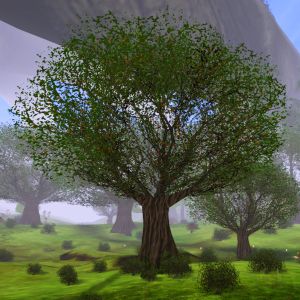From EncyclopAtys
(Creation from FR page) |
|||
| Line 2: | Line 2: | ||
|DE= | |DE= | ||
|EN=Salina | |EN=Salina | ||
| − | |ES= | + | |ES=Salina |
|FR=Salina | |FR=Salina | ||
|RU= | |RU= | ||
| Line 27: | Line 27: | ||
|DE=1 | |DE=1 | ||
|EN=4 | |EN=4 | ||
| − | |ES= | + | |ES=3 |
|FR=0 | |FR=0 | ||
|RU= | |RU= | ||
Revision as of 13:19, 13 August 2019
| Taxonomic Amber | |
| Salinas in summertime | |
|---|---|

| |
| Kingdom | {{{king}}} |
| Category | {{{species}}} |
| Main Ecosystem(s) | Forest |
| Counterattack type | n.a. |
The age of a salina is difficult to establish for it is a fast-growing tree. The bodocs would enjoy rubbing themselves on it, which would explain why the bark of salinas is often damaged.
The colouring of the salina varies greatly depending on the season. It starts out white in winter, because of the snow accumulated in its branches, its flowers make it pink in the spring; it is green in summer (with red fruits), and changes to orange in autumn.
A magnificent tree whose foliage has a very recognisable ball shape, it produces a soft, sweet fruit named salin, which is commonly used in the making of the traditional salin pie (thin crust, sliced salin, mashed salin, spices). As the size of the tree can reach 60 feet, its windfall fruit are sometimes used in cooking, which can give some taste surprises.
The tree has a timber of a beautiful amber colour and is used in joinery.
| |
| |



